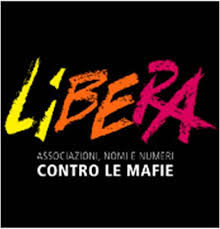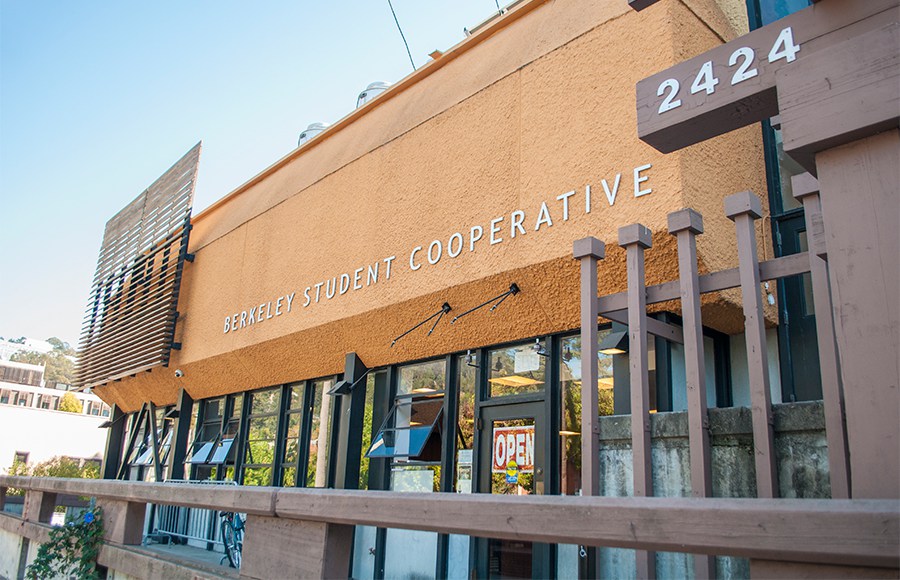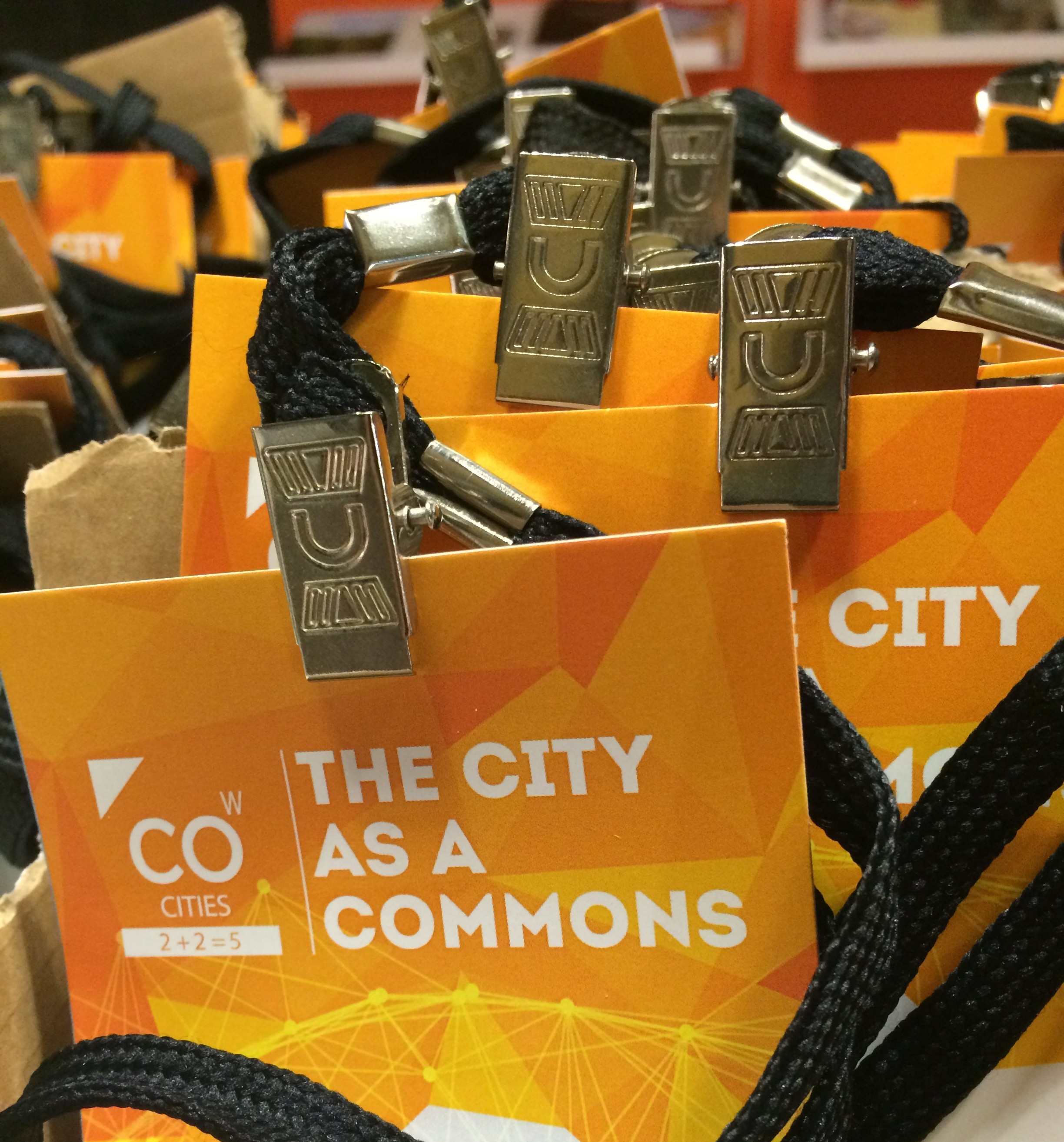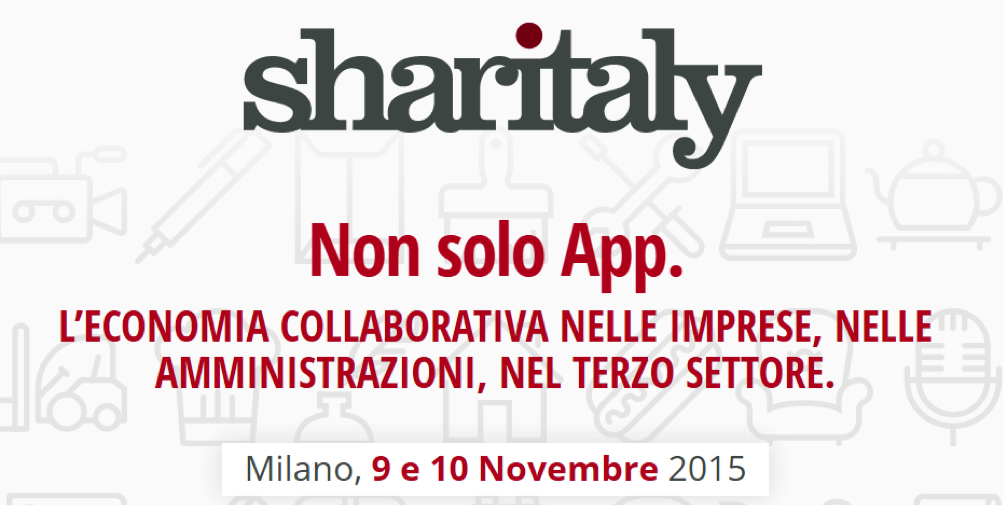
by Vanessa Cantele | Nov 27, 2015 | The Urban Media Lab
THE EVENT “Commons/Comune” WILL TAKE PLACE ON the 11th OF DECEMBER 2015, at FACULTY OF ECONOMY, DEPARTMENT MEMOTEF – UNIVERSITY LA SAPIENZA , VIA DEL CASTRO LAURENZIANO (ROME)
The conferenc e will be the fifth edition in a series of meetings on the topic “Oltre la Globalizzazione” held by the Society for Geographical Studies since 2011.
e will be the fifth edition in a series of meetings on the topic “Oltre la Globalizzazione” held by the Society for Geographical Studies since 2011.
The main topics of the conference will be the various forms of property and the Commons, particularly the definition of commons, which is crucial to fully understanding the management of natural resources and intangible goods such as the environment, landscape, biodiversity, public spending, information and intellectual property.
The participants will discuss and share ideas in eleven special sessions that will be organized throughout the day.
The speakers at the plenary session will be: Christian Iaione (professor of Public Law, Director of the Laboratory for the Governance of the Commons, LUISS Roma; members of the International Association for the Study of the Commons; Ilenia Caleo (Actress, Teatro Valle occupato, Rome); Ugo Rossi (professor of economic and political geography, University of Turin); and Alberto Magnaghi (town planner, professor at University of Florence, President of Societa dei territorialisti). Christian Iaione’s presence is motivated by his knowledge on this specific topic, and on the sharing economy in general. He has also contributed to the draft of the first European institutional document on the sharing economy, “Local and Regional Dimension of Sharing Economy,” which was promoted by the Committee of Regions, rapporteur Benedetta Brighenti (Engineer, Vice Mayor of Castelnuovo Rangone, Modena, Italy) as well as the draft of the “Regolamento sulla collaborazione per la cura e la rigenerazione dei beni comuni urbani” of the city of Bologna. The official english version is available here.
During the preparation of the conference, a book of abstracts was developed, thanks to the collaboration of the participants.
After the conference ,three publications have been planned: an electronic format of “Memorie” by Societa Studi Geografici, a special edition of the rivista “Annuali – Dep. MEMOTEF”, and an article on the “Rivista Geografica Italiana” .
Here is the program of the event: https://ssg2015commons.wordpress.com/programma/
________________________________________________________________________________
GIORNATA DI STUDI GEOGRAFICI, EDIZIONE 2015 – ‘COMMONS/COMUNE” – SOCIETA’ DI STUDI GEOGRAFICI
In data 11 dicembre, presso la Facolta’ di Economia Dipartimento MEMOTEF dell’Universita’ La Sapienza, via del Castro Laurenziano (Roma), si terra’ l’edizione 2015 della Giornata Studio “Commons/Comune”. La conferenza e’ la quinta edizione della Giornata di Studio “Oltre la Globalizzazione” organizzata dal 2011 dalla Societa’ di Studi Geografici. Si discutera’ e si ragionera’ sul concetto di commons.

by Elena De Nictolis | Nov 26, 2015 | The Urban Media Lab
On December 7th and 8th, the “Free innovation” workshop, organized by the association Libera will take place in Naples. The event is organized to celebrate the final phase of “Officine Libere”, an initiative by Libera in collaboration with the Youth National Agency. Prof. Christian Iaione, coordinator of LabGov, will moderate the panel devoted to the commons. Libera is an Italian organization of community empowerment born in 1995 with the goal of investing in civil society in order to promote a culture of legality and justice. Currently, Libera is a network of over 1500 associations, groups, schools, social innovators and entrepreneurs committed to building cultural and organizational synergies in order to spread the culture of legality.
Like many others active in this field, Libera understands that an appropriate governance arrangement for the commons is a key factor to fight against corruption and organized crime in the urban context. “The Regulation for the collaboration between citizens and the administration for the care and regeneration of the urban commons” already contains an article focused on this subject; the fifth paragraph of article 16 states that “the City can allocate buildings that have been seized from organized crime and assigned to the community for the intervention of care and regeneration provided by the Regulation itself.”
The collaborative approach to urban governance has already been adopted by the city of Battipaglia, in the context of the CO-Battipaglia process. The Prefect appointed in Battipaglia in 2014, after the dissolution of the Municipal Council due to Mafia infiltrations, commissioned a study from both ALVISI-KIRIMOTO and LUISS LabGov in order to develop the strategic guidelines for the Municipal City Plan (PUC). The team has the objective of producing guidelines for the realization of a collaborative territorial/local Pact for the care and regeneration of the local commons. The Pact will create a stable public, private, community partnership, that will be technically validated and shared between citizens and local institutions. The Pact will be the base for the establishment of a collaborative implementation method of the future PUC. Moreover, the Pact will be the first step of a new paradigm of local development for the care and regeneration of Battipaglia’s commons.
The goal of the workshop is to find a new, more innovative and more inclusive definition of “confiscated properties” (in the Italian normative framework, there is a specific law on this topic). The shift from the definition of confiscated properties to a one oriented to the commons can be very important and useful for policy makers to better address the topic and find better and more powerful solutions to foster the culture of legality.
Il sette e otto dicembre, a Napoli, si svolgerà l’innovazione libera, una due giorni di analisi e rilancio dell’attività di Libera. L‘innovazione libera è un momento nazionale che raccoglie i risultati del tour nazionale di progettazione partecipata Officine Libere e della programmazione delle Summer Schools già, è il luogo d’incrocio tra le buone pratiche dai territori e le innovazioni possibili con l’obiettivo di costruire una piattaforma con indicazioni, istanze e buone prassi comuni.
L’evento è organizzato per celebrare la fase finale di “Officine libere”, un’iniziativa da Libera in collaborazione con l’Agenzia Nazionale per i Giovani. Libera è un’associazione italiana di community empowerment nata nel 1995 con l’obiettivo di investire nella società civile per promuovere la cultura della legalità e della giustizia. Attualmente Libera è una rete di oltre 1500 associazioni, gruppi, scuole, innovatori sociali, imprenditori impegnati a costruire sinergie culturali e organizzative, al fine di diffondere la cultura della legalità.
Come molte altre realtà attive in questo settore, Libera ha compreso che una strategia di governance collaborativa dei beni comuni è un fattore chiave per la lotta contro la corruzione e la criminalità organizzata nei contesti urbano. Il regolamento per la collaborazione tra i cittadini e l’amministrazione per la cura e la rigenerazione dei beni comuni urbani contiene infatti un articolo finalizzato a questo obiettivo: il quinto comma dell’articolo 16 afferma che
“Il Comune può destinare agli interventi di cura e rigenerazione di cui al presente capo gli edifici confiscati alla criminalità organizzata ad esso assegnati”
L’approccio collaborativo alla governance urbana è già stato adottato dalla città di Battipaglia, nel contesto del processo CO-Battipaglia.
Per arrivare alla stesura delle linee guida strategiche del PUC – Piano Urbanistico Comunale, il Comune di Battipaglia ha avviato un LABoratorio di GOVernance locale per sperimentare, a Battipaglia, governance collaborativa, collaborazione pubblica ed innovazione sociale. Un’urbanistica collaborativa, che mette attorno allo stesso tavolo di co-progettazione cittadini, istituzioni, imprese, società civile ed organizzata, scuole ed università per proporre un nuovo modo di Fare, Vivere e Crescere insieme la città.
Il risultato del laboratorio è quello di restituire al Comune di Battipaglia un patto di collaborazione territoriale o locale che darà vita ad un partenariato stabile tra pubblico, privato e civico/comunità. Il patto, validato tecnicamente e condiviso dagli gli attori del territorio, instaurerà un nuovo paradigma di sviluppo locale orientato alla cura e alla rigenerazione dei beni comuni, in primis urbani, ambientali e cognitivi, di Battipaglia.
L’approccio, per affrontare una co-pianificazione urbanistica, deriva dalla fusione e contaminazione di due metodi di lavoro portati avanti da LabGov e dal Gruppo G124.
Il prof. Christian Iaione, coordinatore di LabGov, coordinerà il panel dedicato ai beni comuni nel corso del workshop organizzato da Libera. Lo scopo del panel è di trovare un nuovo, più innovativa e inclusiva definizione di “beni confiscati” per passare a una definizione più orientata alla governance dei beni comuni urbani.

by Pratusha Erraballi | Nov 23, 2015 | The Urban Media Lab
The Bay Area, fondly known to many as the Silicon Valley, has birthed companies that are known to be crucial cogs in spreading the concept of the so-called “sharing economy.” Uber and AirBnB , for example, were launched and are headquartered in San Francisco. The startup platform AngelList shows 495 “sharing economy” startups with 1,087 investors, with a $ 3.9 million average valuation. [1] Many of these startups are located in the Bay Area.
The East Bay Area, home to cities like Berkeley and Oakland, has a unique sharing culture whose history extends beyond the advent of these companies. For example, the University of California, Berkeley, is home to various housing cooperatives for students (including themed cooperatives like a vegetarian house and an African American house) under the umbrella of The Berkeley Student Cooperative.  The Berkeley Student Cooperative was founded in 1933 and is run as a nonprofit. The idea is to “democratically run” the houses, with each resident [contributing their] labor to help keep […] housing costs affordable. ” [2] Similarly, The Cheeseboard Collective is one of the most popular pizzerias in Berkeley. Cheeseboard has been a worker-owned collective since 1971 in that it is entirely owned by its workers and aims to embody the idea of a “democratic workplace.” [3]
The Berkeley Student Cooperative was founded in 1933 and is run as a nonprofit. The idea is to “democratically run” the houses, with each resident [contributing their] labor to help keep […] housing costs affordable. ” [2] Similarly, The Cheeseboard Collective is one of the most popular pizzerias in Berkeley. Cheeseboard has been a worker-owned collective since 1971 in that it is entirely owned by its workers and aims to embody the idea of a “democratic workplace.” [3]
Janelle Orsi, a self-proclaimed “sharing lawyer” in Oakland co-founded the Sustainable Economies Law Center (SELC) built to aid the development of the commons. [4] Orsi argues that companies like Uber AirBnB and do not draw direct links to the concept of the commons because, for example with Uber, “the property of a car and the labor of a driver are rented temporarily for a fee.” Orsi seeks to work with companies that create more “equitable arrangements.” Orsi has “supported projects in co-housing, community agriculture, car-sharing, and other shared resource management” and SELC often works with cooperatives just like the Berkeley Student Cooperative and Cheeseboard.
Cooperatives are unique in supporting the concept that “wealth should be gained by the people who created that wealth.” Other cooperatives in the East Bay Area includes, among many others: Missing Link Bicycle Cooperative, a forty-year-old worker-owned cooperatives bicycle store; DIG Cooperative, Inc., a general contracting firm for water catchment and reuse systems; and Mandela Foods Cooperative, a worker owned grocery store.
[1] https://angel.co/sharing-economy-4
[2] https://www.bsc.coop/who-we-are/general-info-who-we-are
[3] http://cheeseboardcollective.coop/about
[4] http://www.eastbayexpress.com/oakland/the-true-sharing-economy/Content?oid=4563249&showFullText=true
Photo Source: http://i2.wp.com/www.dailycal.org/assets/uploads/2014/10/BerkeleyStudentCooperative_MDrummond1.jpg

by | Nov 5, 2015 | The Urban Media Lab
The City as a Commons Conference has finally arrived! The LabGov team is on site in Bologna, Italy. We are finishing final preparations at Opificio Golinelli, and pre-registration are well under way at the Urban Center.

The LabGov team anxiously awaits participants’ arrival tomorrow morning at 9 AM for Institutional Greetings with Giusella Finocchiaro, Marco Cammelli, Virginio Merola and Antonio Danieli followed by a welcome from Sheila Foster and Christian Iaione and the Keynote Address from Tine de Moor titled “How To Be A Critical Scholar Of The Commons? Understanding The Commons In All Their Dimensions.”
We look forward to hosting a series of different panels tomorrow, Nov 6, for paper presenters, as well as a series of poster presentations on the urban commons.
Panel topics include exciting urban commons topics such as “Locating and Managing Urban Ecosystems,” “Collectively Shared Civic Networks and Maps,” “Neighborhood Level Common Goods,” among many others.
We plan to end tomorrow’s activities with a Keynote Address by Ezio Manzini at 4:30 PM, in addition to a conversation on Open Cooperativism with David Bollier and Michel Bauwens, moderated by Christian Iaione. This will be followed by a celebratory conference dinner at Palazzo Re Enzo, a palace that is the ideal representation of Bologna’s cultural heritage.

by Monica Bernardi | Nov 4, 2015 | The Urban Media Lab

The Collaborative Week in Milan is coming and all eyes are on the city. An eight-day event from November 7 to 14 the week is divided into five specific sub-events[1] that embody the willingness of Milan, its citizens and other actors to support and spread the voice of the sharing and collaborative economy. The week promises to offer a great debate with national and international experts and is hosted at BASE MILANO. The place itself is an incredible example of public space reuse and provides a new real stage to express the city’s voice and reflects the vibrant and dynamic atmosphere that is marking Milan in the last years: social innovation, creativity, sustainability, collaboration, cooperation, co-housing, co-working…
One of the main and highly anticipated events, among others, is Sharitaly, held on November 9-10, in its third edition. Sharitaly is the first Italian convention entirely dedicated to the sharing economy, born in 2013 thanks to the intuition of Collaboriamo and Cattolica University of Milan, together with Eni Enrico Mattei Foundation. The first edition was held in Milan with the aim of mapping and connecting all the actors of the emerging Italian sharing panorama, involving startups, social businesses, companies, public administration and ordinary citizens. The second edition, Sharitaly Reloaded, was in Rome, at Montecitorio, and represented a first evolution of the event, in reflection of the progression of the phenomenon itself. The aim, indeed, was to bring the Italian policymakers’ attention to the potential of the sharing economy in order to open a discussion about finding a normative frame suitable for the Italian context, without slowing down the phenomenon.
The 2015 edition is part of a broader scope of reflection and, as with every year, it wants to take stoke of the Italian situation and contribute to the larger debate on the collaborative economy and to its implementation. A novelty is the determination to bring the collaborative economy to an enforcement plan, comparing experiences and tools coming from public, private and third sectors, merging their considerations and trying to answer to the main concerns and doubts that such disruptive innovation is generating. The final aim is to understand the pioneering scenarios that the new sharing paradigm is opening. For this reason, the 2015 slogan, “Not only Apps”, is even more significant, since it refers to the importance of re-thinking the sharing economy in the broader context of public institutions, businesses and third sector. The two-day event will be enriched by the presence of experts; creatives; innovators; social entrepreneurs; public administrators; advisors; and researchers from each fields who that will present case studies and best practices, new experimentations and researches, and launch practical seminars and round tables. The following events are also noteworthy: the First Business Forum, the Social Enterprise Mega Workshop and the Collaborative Governance Camp. The first is an active and participative training day to analyze the position of big businesses and new startups in the current collaborative and digital transformation. The second is devoted to social business and will show how to use co-design tools to innovate collaboration. The third, the Collaborative Governance Camp, takes inspiration from the governance of the commons, which LUISS LabGov – LABoratory for the GOVernance of the Commons, is experimenting in many Italian cities and seeks to be a practical training day to build efficient collaborative governance models. Bologna is going to host the First IASC Conference on this topic, from November 6-7, showing the Italian commitment to collaboration.
As with every edition, Sharitaly is an opportunity to launch new formulas and innovations, and after Sharexpo and the Sharing School, now it is time for the Start Up Award, a call to reward the best collaborative initiatives in the Italian scene and give them visibility and support. The wealth of news and many inspiring events made Sharitaly a significant event to attend, particularly given the depth of discussion with regards to the sharing and collaborative economy and education on how to take the best from this new paradigm in the economic, social and institutional field. Check out the program and see you at Sharitaly.
[1] The events inside the Collaborative Week are: Experiment Days, Sharitaly, The European Coworking Conference, Espresso Coworking and Milano Sharing City: la Città in Condivisione, directly organized and proposed by the Municipality of Milan.
——————————–
Al via la terza edizione di Sharitaly, Non solo App. L’economia collaborativa nelle imprese, nelle amministrazioni e nel terzo settore. Il 9 e 10 Novembre all’interno della più ampia manifestazione “Collaborative Week”, Base Milano (ex Ansaldo rigenerato), ospiterà una rivoluzionaria versione di Sharitaly. Se nel 2013 l’obiettivo era mappare e connettere le realtà di sharing economy in Italia, coinvolgendo imprese, cittadini, innovatori, ecc… e nel 2014 è stata la volta di Sharitaly Reloaded, un’occasione per portare il tema all’attenzione dei decisori pubblici invitandoli a ragionare sulle implicazioni normative, il 2015 è all’insegna delle sperimentazioni e delle forme pratiche in cui la sharing economy si sta sviluppando, e vuole essere un momento di incontro, scambio e confronto non solo per le imprese, ma anche per terzo settore e pubblica amministrazione.

 e will be the fifth edition in a series of meetings on the topic “Oltre la Globalizzazione” held by the Society for Geographical Studies since 2011.
e will be the fifth edition in a series of meetings on the topic “Oltre la Globalizzazione” held by the Society for Geographical Studies since 2011.


 The Berkeley Student Cooperative was founded in 1933 and is run as a nonprofit. The idea is to “democratically run” the houses, with each resident [contributing their] labor to help keep […] housing costs affordable. ”
The Berkeley Student Cooperative was founded in 1933 and is run as a nonprofit. The idea is to “democratically run” the houses, with each resident [contributing their] labor to help keep […] housing costs affordable. ” 


